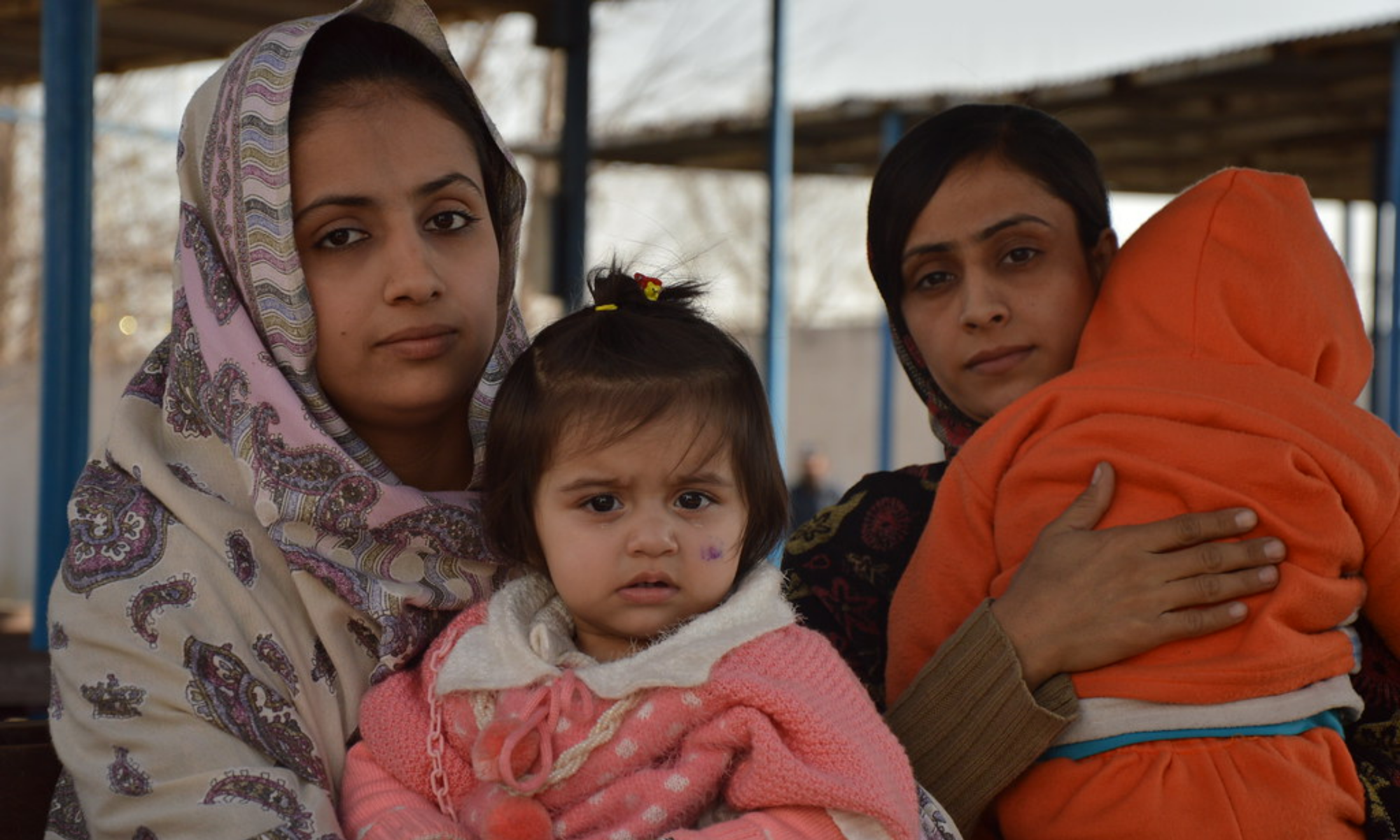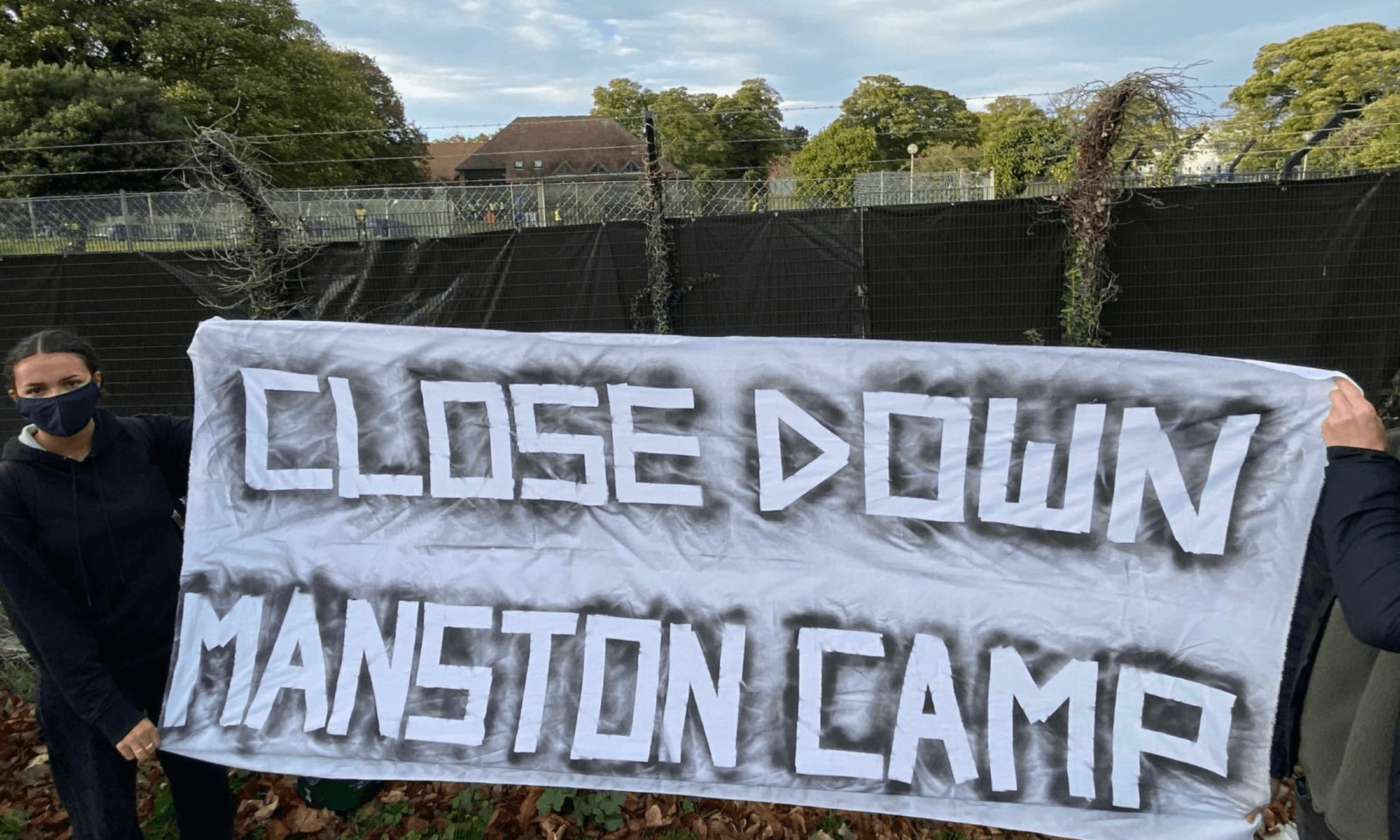
Flickr/UNCHR
The UK announced an Afghan Citizens Resettlement Scheme in August. Nothing’s happened. Why?
Following the Taliban takeover of Afghanistan, the UK government promised fleeing citizens a "warm welcome". In reality, they've been left out in the cold.
Nadia Hasan
22 Nov 2021
Back in August, as the Taliban seized power in Kabul and thousands fled unfolding chaos, the UK government pledged vulnerable Afghans “a warm welcome”.
This so-called ‘welcome’ amounted to a resettlement scheme, titled the ‘Afghan Citizens Resettlement Scheme’ and promised just 5,000 Afghans refuge in year one. It was never enough; even a former Tory defence minister slammed the offer as a “drop in the ocean”. But now there are questions about whether the scheme will even happen at all.
Three months down the line, with ministers admitting the resettlement process is still not open, the one safe route our government promised Afghans now looks dead in the water. As Afghanistan fades from the headlines, this government is instead speeding ahead with long-held plans to criminalise refugees – including the vulnerable Afghans to whom it promised “open arms”.
The fact that the UK’s resettlement promises have fallen flat will come as no surprise to many Afghans. For months, those looking for protection in the UK have been greeted with a government webpage telling them the scheme is “not yet open” and that “further details will be announced in due course”.
Last month Priti Patel seemed to say the quiet part out loud, confessing in a Home Affairs committee evidence session that the resettlement scheme was non-existent and plans to action it were not happening. “We have a scheme, the Afghan citizens resettlement scheme, which is one of the most ambitious in the world,” Patel told the committee.
“We are not able to operationalise that scheme. We simply do not have the infrastructure or the accommodation”.
Patel fell back on tired arguments of a lack of ‘space’ (given England alone has 600,000 empty houses going, there’s room aplenty). Yet others in government say the scheme is going ahead; two days before Patel’s evidence session, resettlement tsar Victoria Atkins told concerned MPs in the Commons Chamber that it was “still in development” and that delays were because the government “want to get this right, which is why it is taking us a bit of time”. A day later, Atkins also admitted that 11,000 Afghan refugees were still stuck in hotels, awaiting permanent housing.
In response to a request from gal-dem, a Home Office spokesperson confirmed that the scheme is yet to open, adding: “The Afghan Citizens Resettlement Scheme (ACRS) is one of the most generous schemes in our country’s history and will give up to 20,000 further people at risk a new life in the UK.
“We continue to work at pace to open the scheme amid a complex and changing picture, working across government and with partners such as UNHCR to design the scheme.”
The spokesperson also confirmed that there will be no application process but instead “eligible people will be prioritised and referred for resettlement to the UK”.
For the Afghans whose lives are under threat right now, mystifying allusions to protection they may or may not be entitled to in several years’ time are as good as useless. At-risk Afghans cannot rely on a queue that does not exist, in a country they cannot afford to wait around in. This is a state where journalists are facing torture, ethnic minorities are being executed, millions face famine, and girls have been banned from secondary school. Those with links to Britain also face particularly grave danger. Thousands will have had to grab their bags and run via any means available to them, even if that means putting their lives in the hands of people smugglers.
“Last month Priti Patel seemed to say the quiet part out loud, confessing in an evidence session that the resettlement scheme was non-existent and plans to action it were not happening ”
But far from a warm welcome, Afghans who have had to make their own way to the UK face hostility at best and criminalisation at worst. Absurdly, despite the shameful lack of safe routes for refugees, the government is now passing the Nationality and Borders Bill, which will discriminate against those coming via ‘unofficial’ means. This means that if you happen to arrive via a (currently non-existent) resettlement scheme, you will be granted full rights and protection.
However, if you arrive in the UK via boat or other so-called “irregular” means, you could face prison-like asylum camps, deportation or a jail sentence of up to 4 years. And even if you’re granted protection, it’s likely you’ll be barred from settling in the UK.
A two-tier system which only deems ‘refugees’ worthy when they’ve come via official resettlement routes is absurd and dangerous. Even if resettlement schemes were to open, most refugees would never have access to them, not least LGBTQ+ people and other minorities fleeing persecution.
And as we’ve seen with Afghanistan, the chaos of conflict often forces those in warzones to flee at a moment’s notice – you’re not going to hang around and wait for an official resettlement scheme to open if you fear your life is in danger. Given this reality, it’s unsurprising that most refugees come via irregular routes. Before the pandemic, for example, we know that around two-thirds of people granted protection in the UK had not come via resettlement schemes.
But this government is clearly not interested in reality-based policy-making. Priti Patel’s new Borders Bill instead responds to an increasingly frenzied moral panic over channel crossings, with the legislation sold as a way to end dangerous crossings and tackle the spectre of the ‘criminal gangs responsible’.
Even by these metrics we know the legislation will fail spectacularly. Every time this government has increased spending on channel security and refugee rights have been eviscerated, dinghy crossings have continued and the price that smugglers charge has sky-rocketed. The Independent Slavery Commissioner has warned the plans will actually increase the risk of trafficking and exploitation, and evidence suggests the plans will simply increase false convictions of vulnerable people seeking protection here.
“The fight against the government’s cruel new asylum plans is far from over and people can lend their voices to the Stop the Anti-Refugee Bill campaign”
Whether its criminalisation of crossings, or the complete lack of safe routes here, it’s clear that the government’s dangerous and draconian asylum plans fly in the face of the warm welcome they promised Afghans. We should not be surprised that the semblance of hospitality they offered a small and select group of refugees was a flash in the pan. Over the past year the Home Secretary has been touting pushbacks, wave machines, and asylum camps on oil rigs as ways of deterring people from seeking sanctuary here. A report commissioned by Freedom from Torture recently deemed Priti Patel’s Borders Bill ‘‘the biggest legal assault on international refugee law ever seen in the UK”. New amendments to the Bill are also attempting to equip the government with the powers to quietly and retrospectively strip people of British citizenship.
This government may be happy to trample over the rights of refugees – even those fleeing conflicts Britain helped create – but we should not stand for it. The fight against the government’s cruel new asylum plans is far from over and people can lend their voices to the Stop the Anti-Refugee Bill campaign. We should not forget the outpouring of public support for Afghan refugees which initially forced the government’s hand. We should not forget the anti-Bill resistance we’ve seen from Glasgow to Folkestone. And we should not stop standing up for community and solidarity, against the hatred, fear and division this Bill sets out to stoke.
Nadia Hasan is Communications Officer for the Joint Council of the Welfare of Immigrants.

Britain’s policing was built on racism. Abolition is unavoidable

How Pakistan’s Khwaja Sira and transgender communities are fearing and fighting for their futures

Their anti-rape performance went viral globally. Now what?






